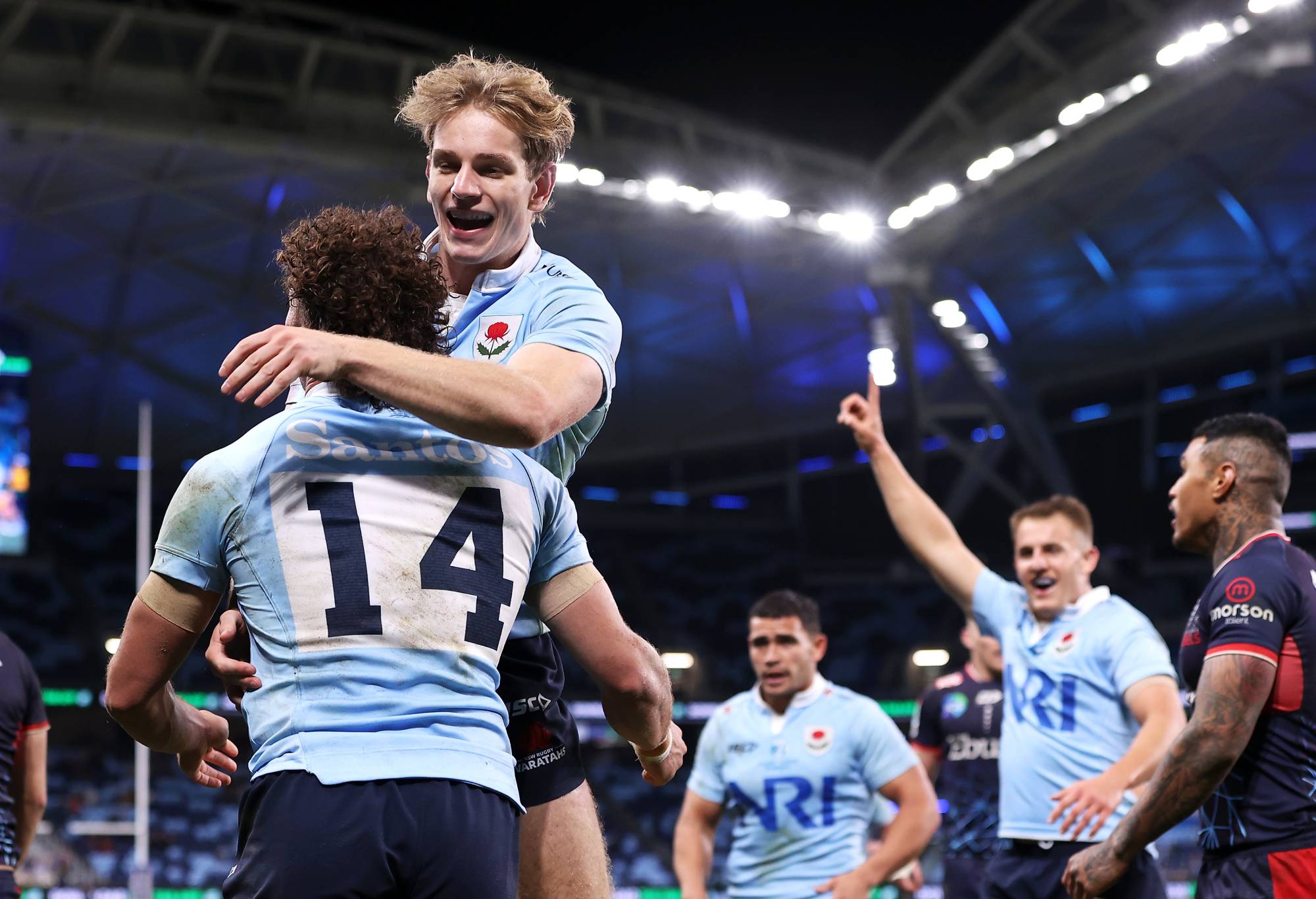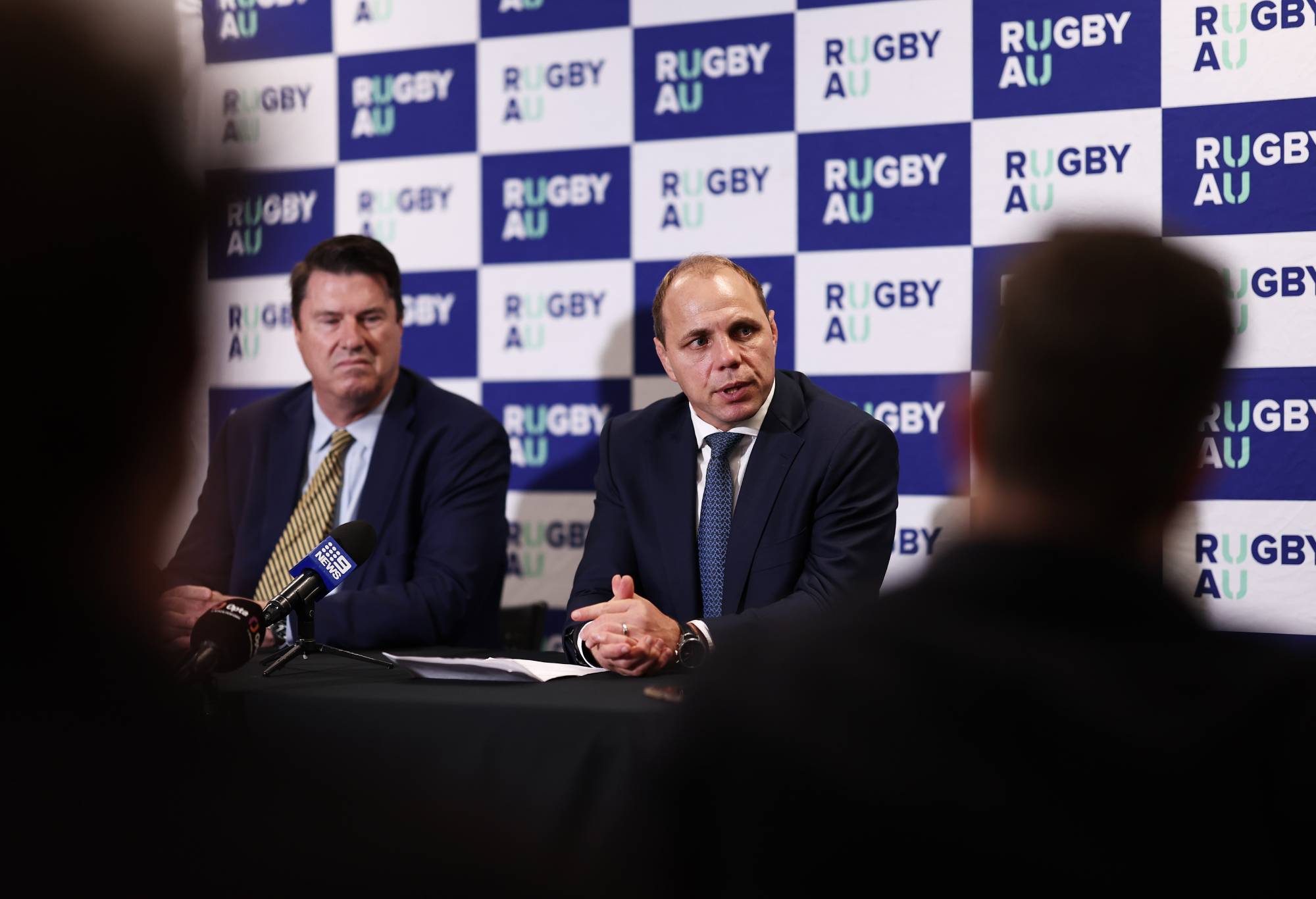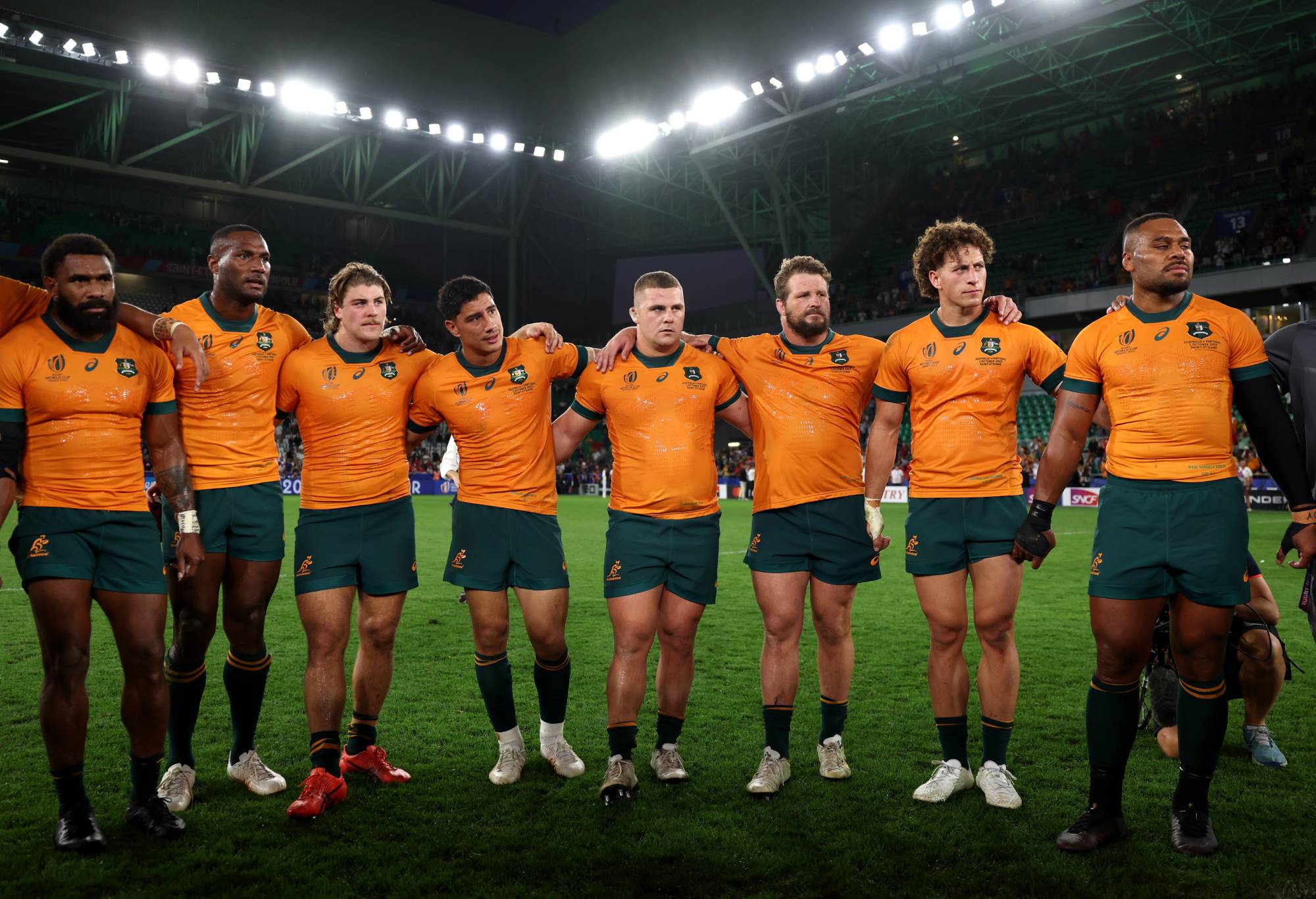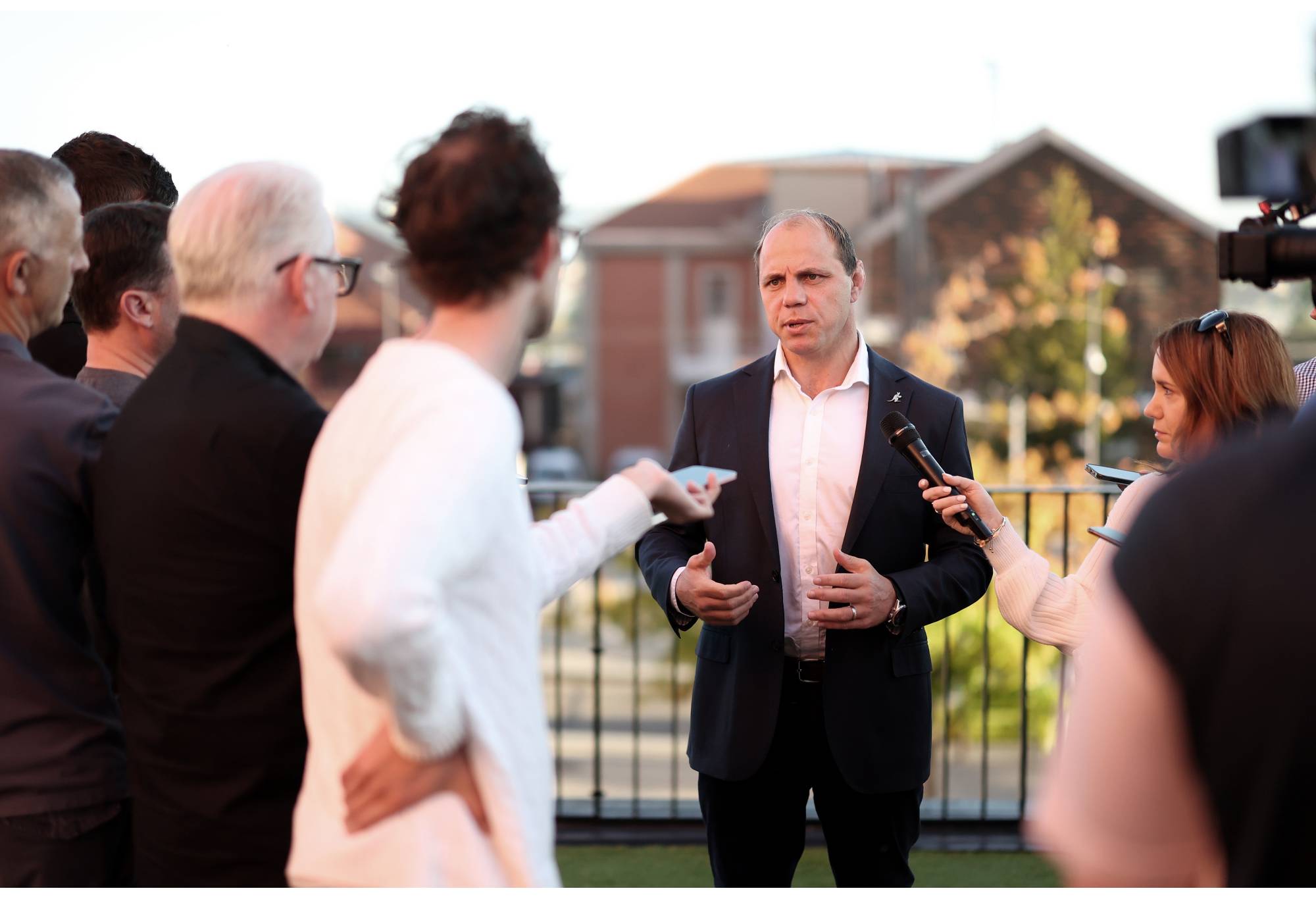In a seismic moment in Australian rugby, the New South Wales Rugby Union is on the cusp of handing over the keys to Rugby Australia in a major boost to the governing body’s plans of ushering through historic reform and moving to a centralised system.
After meetings throughout the week, The Roar can reveal NSW Waratahs chief executive Paul Doorn emailed stakeholders informing them that they were on the cusp of handing over ownership to RA.
By doing so, the Waratahs will cease control of their high-performance and commercial assets.
Although the details have yet to be finalised, it’s a matter of time before the deal is finalised.
“It’s all coming together,” one source said.
“This is a seismic shift, it’s pretty major.”

The Waratahs are set to hand over the keys to their high-performance and commercial assets. (Photo by Mark Kolbe/Getty Images)
Now that the Waratahs – one of the key pillars of Australian rugby – are on board, RA is hopeful the other four Australian Super Rugby franchises will pull the trigger and follow suit. It’s not expected to occur overnight.
The Melbourne Rebels are expected to join RA’s revolution, while the Western Force are said to be aligned with their vision too.
The Queensland Reds previously held strong reservations, but it’s believed the powerful franchise, who along with the Waratahs are the only two member unions with three votes under the current federated model, philosophically agree with RA’s movement.
Although the QRU does not want to lose control of its commercial assets, something RA won’t stand in their way of, it’s believed they have bought the governing body’s push to become more aligned regarding high performance.
As it stands, the great resistors remain the ACT Brumbies who still hold great fears that if they hand over their license, the two-time Super Rugby champions will be moved away from the national capital in due time.
They also hold reservations about whether Sydney-based RA can run the “branch office in Brumbies”.
The Brumbies have always agreed with central contracting, staff and alignment of programs, but they hold great fears around the vagueness of RA’s plan to move to a centralised model.
Currently, RA is still yet to explain what model – the Irish or New Zealand – of centralisation they will follow.
Yet, the great question is for how long, especially with budgets getting tighter and the squeeze being felt across the entire landscape.

Rugby Australia CEO Phil Waugh (R) and chairman Hamish McLennan are attempting to usher through reform. (Photo by Matt King/Getty Images for Rugby Australia)
Only the Reds, who less than a decade were being propped up by the then Australian Rugby Union, can see clear skies ahead. It comes after years of financial prudency under the leadership of David Hanham and Brett Clark, as well as their strong 2021 campaign and the ability of the QRU to draw matches to Ballymore.
The Wallabies’ struggles at this year’s World Cup, where Eddie Jones’ men are set to crash out at the pool stage for the first time, have brought the game’s struggles in Australia to a head following consecutive poor showings on the world’s biggest stage.
It’s hoped greater alignment between high-performance programs, including strength and conditioning programs, can help the national team, with the Wallabies dropping to 10th on World Rugby’s rankings.
Even the Wallabies’ 2015 runners-up finish has been put into perspective in recent weeks, with several rugby figures acknowledging they were fortunate to progress past the quarter-finals after an incorrect penalty call from Craig Joubert allowed Bernard Foley to step up and seal victory from the jaws of defeat.
As one source said: “If we got to the quarters or the semis, I don’t think we’d be in this position. It wouldn’t have happened.”

The Wallabies’ struggles at the World Cup may have helped Rugby Australia’s push to become more aligned. (Photo by Chris Hyde/Getty Images)
Ushering through constitutional change and reform by moving to a centralised system has been the thorn in the backside of RA for years.
As recently as a decade ago, David Nucifora left his high-performance post with the ARU after his plans to reform were shot down.
Nucifora has since overseen Ireland’s rise to the top of the World Rugby rankings and several Six Nations, including two grand slams, as well as a historic series win in New Zealand last year, which has the Emerald Isle as one of this year’s World Cup favourites. He has done so by overseeing and building on their centralised model. It’s something Nucifora strongly believes RA must do to get back on track.
Earlier this week, RA chief executive Phil Waugh put his weight behind under-siege coach Eddie Jones and said the system needed to change to help build and expand talent base in Australian rugby.
“I think [we’ve been] pretty forthright around the fact that we’re committed to Eddie and he probably looks at the campaign and is bitterly disappointed about his performance and the Wallabies performance,” Waugh told reporters on Monday morning.
“I think this is not so much around chopping and changing coaches as it is around actually just fixing the system. It’s pretty evident when we lose a couple of players, the depth of the player that we’re bringing through is not necessarily up to it.
“You’re not going to win World Cups or win international games if you don’t have that depth and system supporting the national team.”

Rugby Australia CEO Phil Waugh speaks to the media on October 02, 2023 in Saint-Etienne, France. (Photo by Chris Hyde/Getty Images)
Waugh said that building trust between the governing body and the member unions was vital for ensuring their vision comes to fruition.
He added that RA was realistic that not every Super Rugby union would jump on board their centralisation plan from the outset.
“I don’t think you’re going to have everybody all at the same time,” he said.
“It’s about building the credibility and the trust.
“Initially it might be two or three per Rugby clubs and then, as we go forward, hopefully others come in.
“It’s as much about off-field performances as it is on-field. We certainly feel that if we can be more efficient with how we go to market on some of the commercial aspects, then it’s not just an on-field benefit, we’ll get an off-field benefit as well.
“I genuinely believe it’s actually building trust and credibility – something we haven’t necessarily instilled across the system for a long period of time.”
































































































